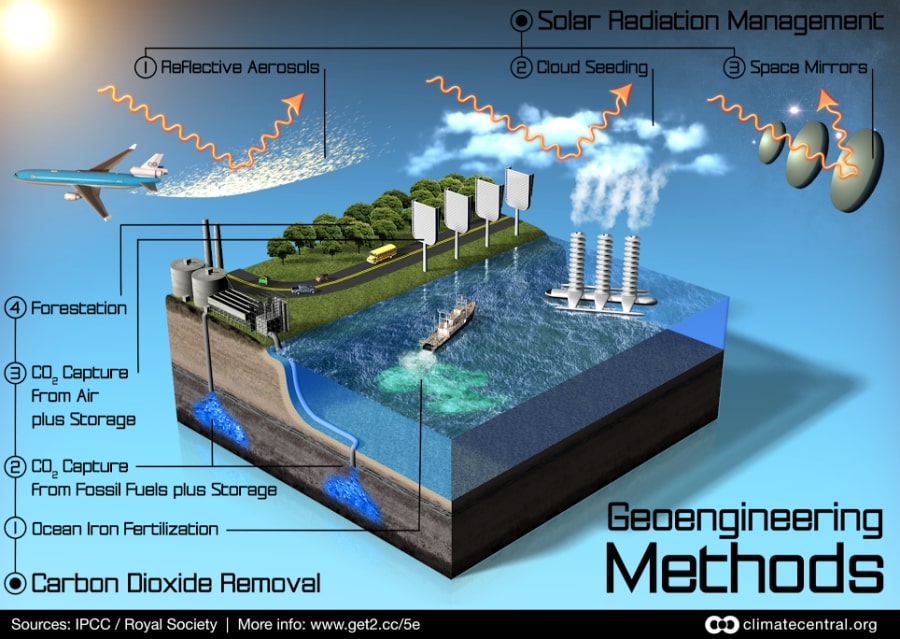A panel of global experts has urged governments to place a moratorium on efforts to geoengineer the planet’s climate, as greenhouse gas emissions continue to rise and the climate crisis takes hold.
Geoengineering is said to be highly controversial. However, discussions of its feasibility are gathering pace as the impacts of extreme weather, driven by climate breakdown, grip the planet. There is no global agreement on geoengineering, and no rules on what countries, or businesses, can do.
In a report which was published on Thursday, the Climate Overshoot Commission called on governments to phase out fossil fuels, put more resources into adapting to the impacts of extreme weather, and start using technologies to remove carbon dioxide, such as carbon capture and storage and the capture of carbon directly from the air.
In the report, governments were asked to allow academics to investigate the possibilities of geoengineering, chiefly in the form of solar radiation management, which involves attempting to reduce the amount of sunlight striking the Earth’s surface, for instance through whitening clouds to be more reflective, or setting up mirrors in space.
The panel also warned that governments must not embark on any such activities because of the dangers involved in tinkering with the global climate in ways that are not yet well understood.
Pascal Lamy, who is the former chief of the World Trade Organization, who chaired the Climate Overshoot Commission, said it was “not inevitable” that the world would overshoot 1.5C, the global temperature limit governments have agreed, but that the likelihood was increasing.
However, he warned that the world could not ignore the possibility of geoengineering, as some countries could start to investigate and experiment on their own.
He said: “There is an increasing international discussion of solar radiation management. But the danger is of unintended consequences, and of transboundary consequences.” Scientists could not say whether solar radiation management was safe, and the precautionary principle should be applied, he said.
Lamy further urged all governments to unilaterally decide on a moratorium, rather than wait for a global agreement on one. “I do not propose a big international conference – that would take a lot of time in my experience,” he told the Guardian, in an interview.
According to him, academic research on solar radiation management should be shared, open and transparent.
Story was adapted from the Guardian.
